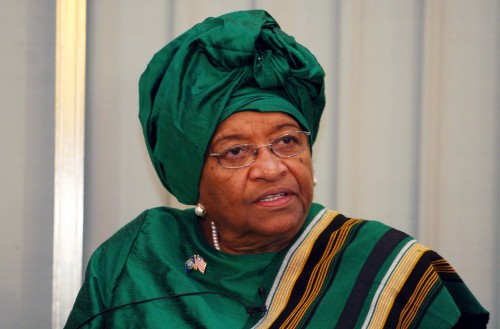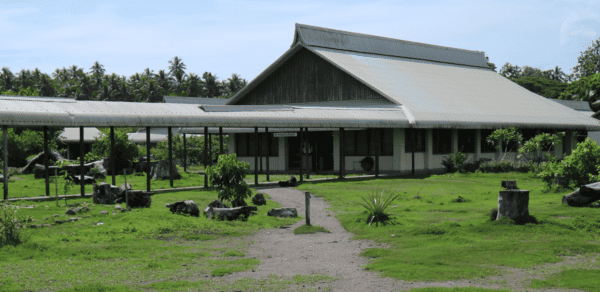I’m often guilty of describing myself as an ‘Africanist’ even though my research focuses only on Rwanda and the eastern DRC.
When I teach courses on African security, I focus on the ‘important states’ – Nigeria, South Africa, Kenya, and the ‘significant conflicts’ – Biafra, the Rwandan Genocide, Sierra Leone, Liberia, the Congo Wars, the Sudans and Darfur.
It doesn’t seem to bother people that I neglect to mention Djibouti, Comoros or Cameroon. After all, with 54 countries in ‘Africa’, you’ve got to narrow it down somehow. It makes sense to focus on the big players and the media-monopolising conflicts.
Furthermore, since the late 1950s and 1960s, Pan-Africanism and the continent’s unity has been seen as a positive goal. Unity has long been suggested as a powerful vehicle through which Africa can stand against the spectres of colonialism and emerge strong.
Kenyan academic Ali Mazrui called it the Pax Africana – providing ‘African Solutions to African Problems’. Drawing on Mazrui’s influence, Nigerian scholar Adekeye Adebayo talks of the need to lift the ‘Curse of Berlin’. Adebayo quotes Mazrui’s ideas of racial sovereignty, arguing that ‘inter-African intervention by black states in the affairs of other brotherly states was more legitimate than intervention by outsiders’.
But to me, this idea – while perhaps true in the immediate aftermath of independence – seems outdated. If vulnerable populations are being abused, are they comforted that their oppressors are fellow Africans rather than Europeans?
So, at the recent Africa Debates organized by the African Leadership Centre (ALC), I found myself asking – what’s so ‘African’ about African leadership?
ALC Director ‘Funmi Olonisakin reminded us that the ALC grew out of the notion that certain aspects of leadership, such as how to create and maintain peace and security, were missing from the African knowledge base. They sought, therefore, to create ‘a critical mass of educated Africans’ who could address this problem.
The Debates, part of the ALC’s Peace and Security Training Fellowship for African Scholars, involved high-level role play. The Fellows were asked to research the background, policy positions and characteristics of key players in African politics. Taking the roles of politicians such as Goodluck Jonathan, Madame Zuma, or Riek Machar, they had to respond to questions from the audience on topics ranging from domestic sexual morality laws to military intervention in the Central African Republic.
It typified the ALC’s agenda of transformation, training African men and women to become drivers of change. The Fellows demonstrated an impressive range of in-depth policy knowledge and the importance for leaders of effective political communication and rhetoric.
Although it provided an interesting insight into leadership, I was not entirely convinced it was ‘African leadership’. Two issues suggest caution.
Firstly, as Danielle Beswick’s study of the creation of a post-ethnic identity in Rwanda and Sri Lanka shows, commonalities in the political processes driving leadership are not confined to Africa. By focusing solely on ‘African’ leadership, then, are we in danger of excluding cross-comparison and missing out on lessons from more appropriate non-African cases?
Secondly, and to my mind more worryingly, we risk reifying as ‘African’ only a dozen or so ‘important’ African states. And that could mean that we build the capacity of already-powerful states at the expense of their weaker neighbours. It’s perhaps no coincidence that the African scholars I cite here are from Nigeria and Kenya. And if we look at African Nobel Laureates, only five sub-Saharan countries are represented (Ghana, Kenya, Liberia, Nigeria and South Africa).
Should we be strengthening the capacity of South Africa to act like an economic behemoth over Lesotho and Swaziland? Does Nigeria have the legitimacy to speak for West Africa, simply because it’s stronger and wealthier than Guinea-Bissau?
Perhaps we should examine these issues more closely, and consider the rich and diverse nature of African states and their political processes when we talk of ‘African leadership’.
Of course, I’m not against African-led interventions. As the Economic Community Of West African States (ECOWAS) showed in Liberia (PDF, 141 KB), regional solutions to regional problems can be successful. I just question the idea of African unity – and of African leadership – as so unproblematically desirable.
The work of the African Leadership Centre is important in addressing the lack of effective leadership that hinders many countries. But I think, when addressing African leadership, two questions first need to be answered: What is so ‘African’ about specific issues which affect leadership in African states? And, by strengthening the leadership capacity of just a few (already) dominant states within Africa, are we really empowering Africa as a whole?










